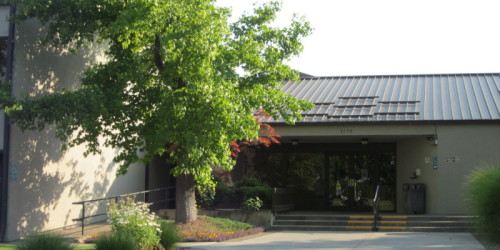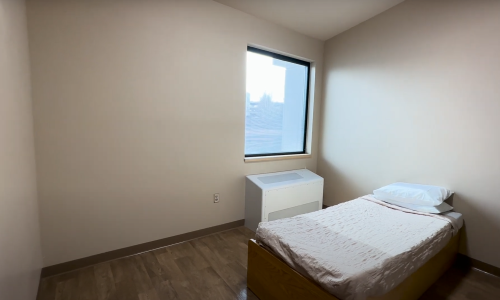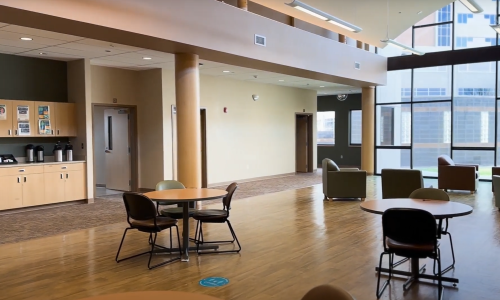






Lourdes Counseling Center
Treatment Focus
This center treats mental health conditions and co-occurring substance use. You receive collaborative, individualized treatment that addresses both issues for whole-person healing.
Primary Level of Care
Provides 24/7 medical supervision and intensive treatment in a clinical setting for individuals in crisis or with acute needs, focusing on stabilization and immediate safety
This provider hasn't verified their profile's information. Are you the owner of this center? Claim your listing to better manage your presence on Recovery.com.
Treatment Focus
This center treats mental health conditions and co-occurring substance use. You receive collaborative, individualized treatment that addresses both issues for whole-person healing.
Primary Level of Care
Provides 24/7 medical supervision and intensive treatment in a clinical setting for individuals in crisis or with acute needs, focusing on stabilization and immediate safety
Provider's Policy
We have a complete list of charges for all services. We have discounts negotiated with third-party payers like Medicare, Medicaid, and commercial insurance companies, as well as patient-specific discounts based upon financial need. Contact our financial counselors to discuss out-of-pocket costs.
Lourdes Counseling Center
Lourdes Counseling Center
About Lourdes Counseling Center
Also known as Lourdes Behavioral Health, Lourdes Counseling Center in Richland, WA offers outpatient and 24-hour inpatient care for adults facing serious mental health challenges, as well as co-occurring substance use or physical health challenges. They support both voluntary and involuntary clients, including individuals involved in the legal system.
Comprehensive Support for Co-Occurring Concerns
In addition to common mental health conditions like anxiety and depression, Lourdes treats many co-occurring concerns—such as memory loss tied to mental illness, hallucinations, tremors, and challenges with self-care—with a focus on safety and stability. Services include inpatient psychiatric care, a residential crisis triage program, and smaller residential homes.
Lourdes does not diagnose ADHD, but they care for clients with an existing diagnosis.
Access to Care
Clients can come for outpatient care Monday through Thursday from 7 a.m. to 6 p.m. For residential care, the staff are available to clients 24/7 and ensure that clients receive structured support throughout the week.
Evidence-Based and Medical Therapies
Treatment at Lourdes is based on evidence-backed approaches. Clients participate in individual and group therapy sessions and receive medication management tailored to their needs. Lourdes works with caregivers to guide them and coordinate care during the treatment.
Additionally, clients can add Lourdes' nutritional counseling or additional healthcare services to their mental health treatment for well-rounded treatment.
Crisis Services and Stabilization
Lourdes has specialized care for clients in crisis, offering stabilization and clinical support for urgent mental health needs. Their medical team is trained to manage psychiatric symptoms and withdrawal-related issues.
Tracking Care
Lourdes uses the My Health Record system so clients can keep track of their treatment progress during and after care. This makes it easier to stay connected with their team and follow up on long-term needs.
Comfortable Living and On-Site Amenities
Clients stay in a secure setting that includes 32 licensed inpatient psychiatric beds, 16 residential crisis triage beds, and 10 residential home beds. Living arrangements vary and may include private or shared rooms with shared bathrooms. The facility includes consultation rooms, activity spaces, and areas designed for group interaction.

Center Overview
Treatment Focus
This center treats mental health conditions and co-occurring substance use. You receive collaborative, individualized treatment that addresses both issues for whole-person healing.
Joint Commission Accredited
The Joint Commission accreditation is a voluntary, objective process that evaluates and accredits healthcare organizations (like treatment centers) based on performance standards designed to improve quality and safety for patients. To be accredited means the treatment center has been found to meet the Commission's standards for quality and safety in patient care.
Insurance Accepted
Cash Pay Rates
Estimated Cash Pay Rate
Center pricing can vary based on program and length of stay. Contact the center for more information. Recovery.com strives for price transparency so you can make an informed decision.
Levels of Care





Your Care Options
Specializations
Anxiety
Anxiety is a common mental health condition that can include excessive worry, panic attacks, physical tension, and increased blood pressure.
Licensed Primary Mental Health
Some primary care providers offer mental health diagnosis and treatment. This can prevent patients from developing more serious conditions.
Self-Harm
The act of intentionally harming oneself, also called self-injury, is associated with mental health issues like depression.
Who We Treat
Men and Women
Men and women attend treatment for addiction in a co-ed setting, going to therapy groups together to share experiences, struggles, and successes.
Approaches
Medical
Medical addiction treatment uses approved medications to manage withdrawals and cravings, and to treat contributing mental health conditions.
Evidence-Based
A combination of scientifically rooted therapies and treatments make up evidence-based care, defined by their measured and proven results.
Individual Treatment
Individual care meets the needs of each patient, using personalized treatment to provide them the most relevant care and greatest chance of success.
Therapies
1-on-1 Counseling
Patient and therapist meet 1-on-1 to work through difficult emotions and behavioral challenges in a personal, private setting.
Psychoeducation
This method combines treatment with education, teaching patients about different paths toward recovery. This empowers them to make more effective decisions.
Nutrition Counseling
Nutritious food helps patients heal from within, setting them up for mental and bodily wellness as they learn about healthy eating.
Recreation Therapy
In recreation therapy, recovery can be joyful. Patients practice social skills and work through emotional triggers by engaging in fun activities.
Conditions We Treat
Post Traumatic Stress Disorder
PTSD is a long-term mental health issue caused by a disturbing event or events. Symptoms include anxiety, dissociation, flashbacks, and intrusive thoughts.
Anxiety
Anxiety is a common mental health condition that can include excessive worry, panic attacks, physical tension, and increased blood pressure.
Depression
Symptoms of depression may include fatigue, a sense of numbness, and loss of interest in activities. This condition can range from mild to severe.
Suicidality
With suicidality, a person fantasizes about suicide, or makes a plan to carry it out. This is a serious mental health symptom.
Bipolar
This mental health condition is characterized by extreme mood swings between depression, mania, and remission.
Trauma
Some traumatic events are so disturbing that they cause long-term mental health problems. Those ongoing issues can also be referred to as "trauma."
Self-Harm
The act of intentionally harming oneself, also called self-injury, is associated with mental health issues like depression.
ADHD, ADD
ADHD is a common mental health condition caused by dopamine imbalance. Common symptoms include inattention, hyperactivitiy, and impulsivity.
Substances We Treat
Co-Occurring Disorders
A person with multiple mental health diagnoses, such as addiction and depression, has co-occurring disorders also called dual diagnosis.
Drug Addiction
Drug addiction is the excessive and repetitive use of substances, despite harmful consequences to a person's life, health, and relationships.
Alcohol
Using alcohol as a coping mechanism, or drinking excessively throughout the week, signals an alcohol use disorder.





